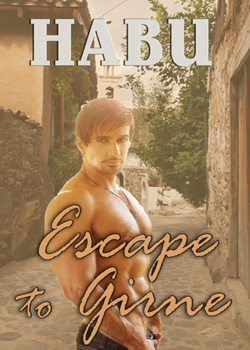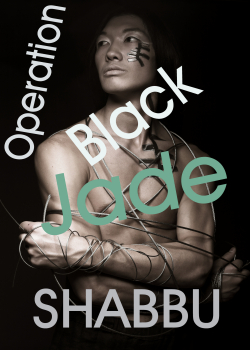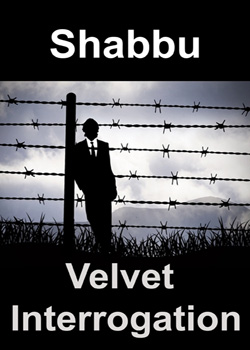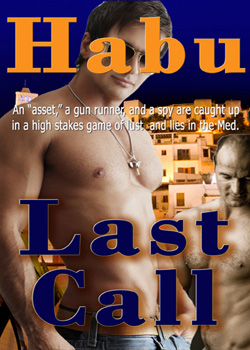In this standalone sequel to the gay male espionage thriller, Last Call, CIA official “Clifford Clarke” retreats to the northern Cyprus castle harbor town known to the occupying Turks as Girne and to the displaced Greeks as Kyrenia to restore an old Turkish house above the harbor. An operation in Syria has gone very bad and his best agent and bed partner, Peter, has been executed. Steeped in grief and guilt at having lost Peter and having been involved in sending Peter to his death—on top of many other decisions Clarke has had to make that he regrets—Clarke throws himself into a house restoration project. He also sinks into an orgy lifestyle, seeking punishment and atonement through increasingly dangerous and ever rougher sex. The downward spiral starts mildly with his house carpenters and moves on to the sadistic neighbor and restaurant owner, Fuad Fikrit, whose dealings are very much on the shady side.
As Clarke slides into self-destruction and increasingly rough and wanton sex, connections to the events that unfolded in Last Call creep in and indications start to appear that there’s more going on beneath the surface of both his appearance in Cyprus and his apparent march toward oblivion.

Effendi’s was just three row houses to west and had one of the best views in all directions of the activity in the harbor, which was quiet at this time of evening, but also festive. The restaurant was one of the oldest ones on the harbor. It had been called Effendi’s when I last ate there—cruising for young Turkish hunks—and it had been one of my favorites. As with all restaurants in the warmer weather in Cyprus, which lasted some eight months of the year, all of the restaurant’s tables had been pulled out to the quayside and the interior of the restaurant, although dimly lit, was nearly empty.
I saw who I assumed was Fuad Fikret almost immediately, standing in the shadows beyond the restaurant, menus in hand, talking to another man. Fikret was exactly what I would have expected, a middle-aged man—probably nearly ten years older than I was—who belied the usual fast deterioration of body of the Turkish-Cypriot male of this age and was, instead, a swarthy form of a Zeus. His aspect was one of being both meltingly enticing and disturbingly dangerous. He had the air of extreme self-confidence about him, the insistence of control, the knowing that he was superior among men of the late middle age.
He was dark-skinned—deeply tanned—although not as dark as the man he was talking with so earnestly in the shadows, and the first impression I got of him was how hirsute he was—and how much I’d like to follow that curly line black hair coming down from his throat and into the neckline of his billowy white, open-fronted shirt down to below his beltline. I found myself going hard immediately, which was all to the good for what I hoped was to come. He had a full head of black, curly hair with silver highlights in it and a perpetual, I assumed, five-o-clock-shadow beard and mustache. I had the sensation of lying there under him, him inside me, and looking at his face while he shaved, but seeing the hair start to grown out on his cheeks and chin almost as soon as he was finished and began once more pumping inside me.
To say that I wanted him inside me from the first moment I gazed upon him would be an understatement.
The curly hair continued down his throat and tumbled out of his shirt front, open three buttons down. I could tell that his chest would be heavy slabs of hard muscle. A gold medallion, suspended on a thick gold chain, nestled between his pecs. My eyes moved down to his tight black trousers to assure myself that the bulge at his crotch would be prominent, which it was. He was wearing sandals without socks, and even from here I could see that the toes were plump and covered with curly black hair.
His ruggedly handsome face was set in a scowl, which was accentuated by a hairline scar running from an earlobe down to the corner of a cruel-looking mouth. He had all of the markings of a satyr or the devil himself, and I felt myself trembling at the possibilities of him.
All of that was taken in with a quick observation, though, as I was more concerned about the man he was so intensely engaging in conversation—the Yemeni. I knew he was a Yemeni. I even knew his name, or the one-syllable name we referred to him at Langley. Murad. I knew him well, and my blood ran cold and I lost my budding hard on when my attention went to him. All of my muscles tensed, and it was all I could do not to pounce on him.






